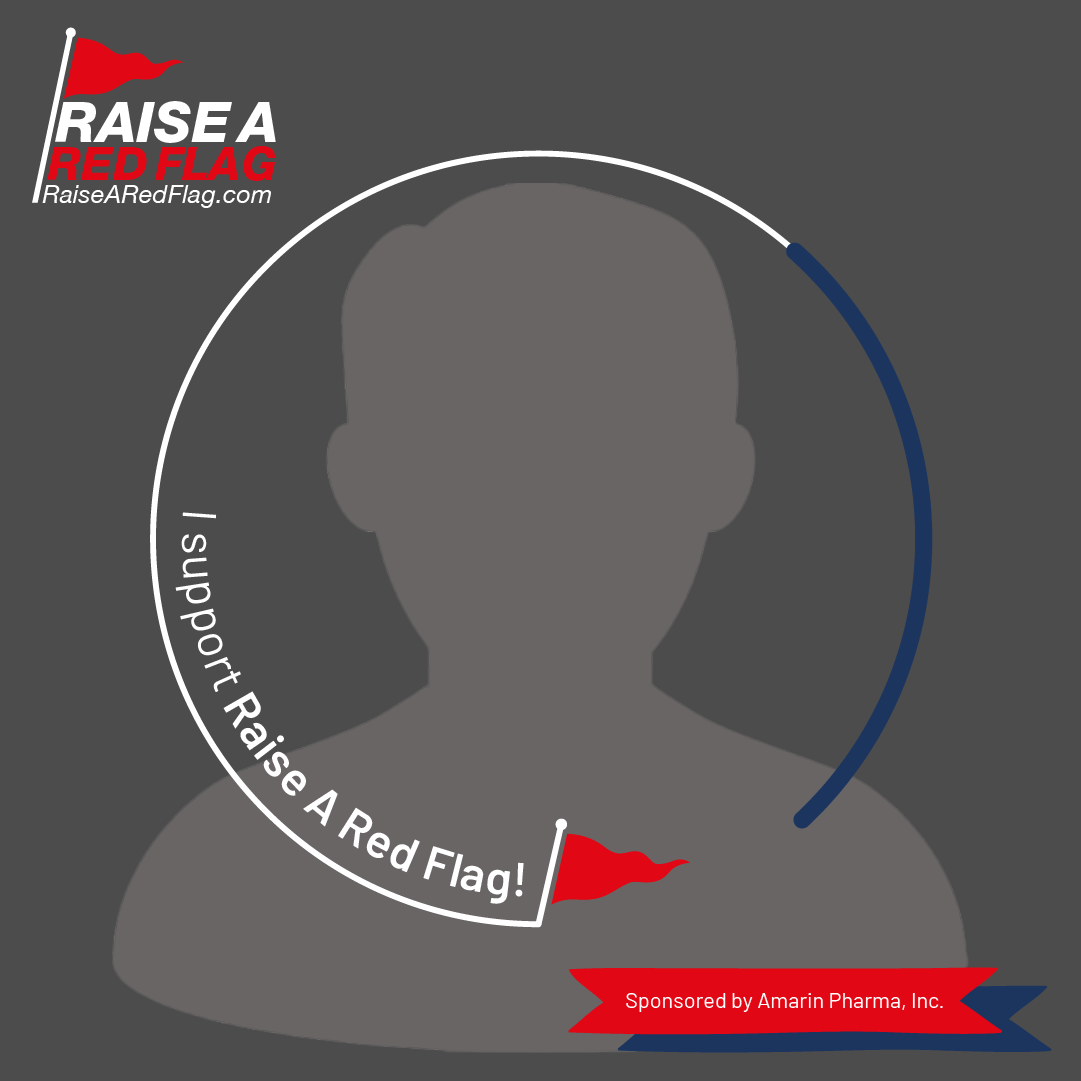
Join us in fighting heart disease
About the program
Amarin is encouraging people who have already had a heart attack or stroke to learn about their risk–and talk with their healthcare provider about the right treatment for their individual condition.
Why?
Many patients who have already had a heart attack are up to 50% more likely to have another cardiovascular (CV) event (such as heart attack or stroke) or heart procedure within only 1 year.
Whether you’re someone who has experienced a CV event personally, you know a friend or loved one who's been affected, or you’re a caregiver or healthcare professional, we are asking everyone to act now and use #RaiseARedFlag to bring attention to this important matter. Don’t wait for another CV event. Act now for yourself and for your loved ones, and talk with your healthcare provider about your individual risk. #RaiseARedFlag
How?
Post to your profile and use the hashtag #RaiseARedFlag to help spread the word! Include the link RaiseARedFlag.com to share more helpful information about heart disease, to find a healthcare provider, and to schedule an appointment either in-person or via a telehealth visit.
Visit us on Facebook and YouTube
Getting started on social media
Join the movement on social media. Use the following as a starting point for your own social media post to start creating awareness:
Example social media post
I am proud to #RaiseARedFlag to bring awareness to such an important issue. Join the movement and #actnow! For more information, visit www.RaiseARedFlag.com
URLs, hashtags, and accounts to tag
RaiseARedFlag.com
#RaiseARedFlag
#actnow
Graphics to download
Download graphics to include with your social media post:
Why we chose a Red Flag. To raise a red flag means:
General
A red flag is a well-known signal indicating potential or imminent danger or trouble.
Heart health
For patients, a red flag means to raise awareness that once a patient—or a loved one—had a heart attack or stroke, their risk of another cardiovascular event is substantially higher.
